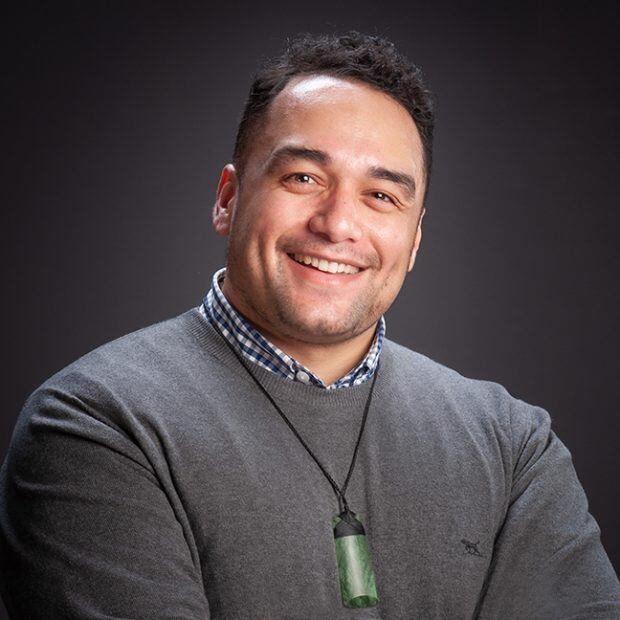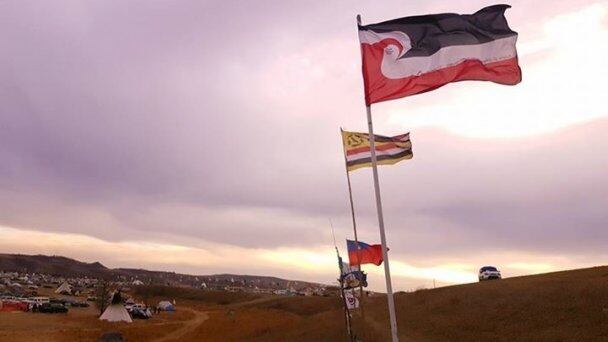This year's recipient of the Fulbright-Ngā Pae o te Māramatanga Scholar Award to conduct research at Harvard University in the US, Dr Pounamu Jade Aikman, will examine corporate violence against indigenous people in the US.
His award is valued at up to US$37,500 for three to five months of teaching and research at US institutions.
Aikman, of Ngāti Maniapoto, Tainui, Ngāi te Rangi and Ngāti Awa, lives in Wellington where he's an adjunct research fellow in criminology at Victoria University.
While at Harvard, Aikman will work on a comparative study of indigenous experiences of settler colonialism in Aotearoa and the United States, building on his doctoral research, which examined the nexus between indigenous sovereignty and settler state violence in Aotearoa.
“The opportunity to be able to speak frankly with other indigenous communities about similar experiences of colonisation is mostly what I’m looking forward to,” Aikman says.

Dr Pounamu Jade Aikman / Supplied.
US political structure
Aikman's research in the US will examine the use of violence by private companies and the corporate sector working with the state to respond to indigenous land claims and protests.
He says there are similarities and differences in examining different colonial countries, “because colonisation was underpinned by a particular set of values and ideals based on the dehumanisation of indigenous peoples”.
“But of course the United States has evolved differently. It has its own political structure, its own legal structure and particularly what I’m looking at is the impact of corporations in that mix as well. So, while there are similarities there are also particular differences as well with regard to the corporate sector.”
Aikman says the Dakota access pipeline is probably the most prominent example of this where state police were supplemented by private contractors.
“What struck me was the overt nature of the deployment of corporate, hired guns in that way but also the role of the corporate sector more broadly in undermining indigenous claims to land which of course happens across te ao whānui.”

Hundreds pour into the frontline Oceti Sakowin Camp, despite calls from the Mayor of Bismark to those opposed to the Dakota Access Pipeline to stay away - November 2016. Source: File
Tūhoe police raids
Aikman decided to focus his doctoral research on armed police raids in the Eastern Bay of Plenty after learning about an experience his friend, from Ngāti Tūhoe and Ruatoki, had had.
“I heard of an Armed Offender’s Squad (AOS) raid on her whānau homestead and so I asked what was going on," Aikman says.
“She explained the AOS had accidentally raided her home. It was based on incorrect intelligence and so what I looked at, in unpacking what had happened, was trying to make sense of raids like that but also raids that had continued to impact upon Tūhoe for a very long time.”
He also says he owes his success to his mother, Anah Aikman.
“I’m fortunate to have been raised by a strong Māori woman who always put an emphasis on what was right and what was wrong and the importance of doing something about if we see things that are wrong.”
Ngā Pae o te Māramatanga co-director Professor Tahu Kukutai says Pounamu is a great Māori scholar.
“We are incredibly proud to help enable the furtherance of his significant research in this international comparative manner.”
Fulbright New Zealand executive director, Penelope Borland, says Fulbright is pleased to support Pounamu’s research and looks forward to hearing more about his findings particularly as it pertained to Indigenous experiences of state violence and how this differed between Aotearoa and the US.
